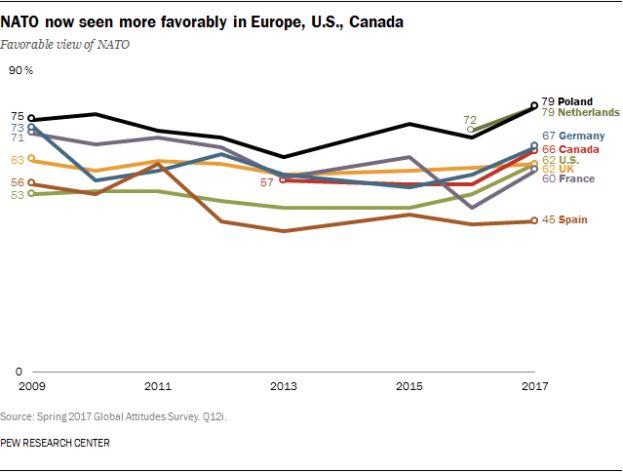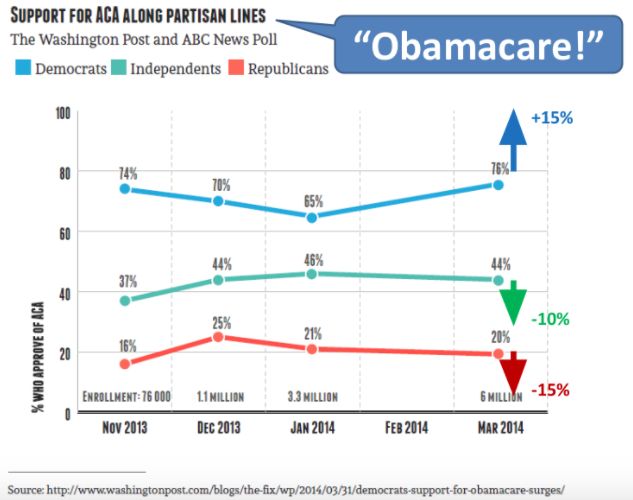Tribal Politics Make Hypocrites Out of Republicans AND Democrats

A lot of people feel pretty strongly about their political opinions. Often we feel like they are quite set in stone; based on some very deep values that won't change much.
A lot of people also feel like their opinions are based on well-thought-out logic and reasoning, from gathering evidence.
However, there's substantial evidence to suggest that when another tribe's opinions solidify on an issue, our tribe runs away--and we join them. Our opinions on important issues are often fluid and fickle, changing with political wind more than sound thinking.
One example is climate change -- once a nonpartisan issue, voters started following the opinions of the leaders of their parties as those leaders' opinions formed.
From The Atlantic:
"Many issues elicit some kind of cross-partisan support until political debate polarizes public opinion. Climate change, as a whole, for instance, has followed this trajectory—as Republican leaders have increasingly rejected action on global warming, concern about the climate from their voters has decreased over time."
But there's lots more. And both sides do it.
Other Examples
- When Obama considered striking Syria for its use of chemical weapons, only 22% of Republicans supported it. When Trump struck a Syrian airfield, 86% of Republicans supported him.
- Before Trump, 56% of Democrats said they had a favorable view of NATO. As Trump took power and started railing against it, that number went up to 78%. Republicans became slightly less keen on it. (In fact, many other NATO member states' favorability of NATO went up as soon as Trump started blasting it.)

- In 2014--4 years after the ACA was passed into law--Republicans and Democrats were--not surprisingly--as split as ever on it. But when pollsters asked about "Obamacare" rather than the ACA, 15% more Democrats supported it and 15% fewer Republicans supported it.

- Related to the above: In the 1990s, when Democrats were discussing a public healthcare system, Republicans broadly supported a mandate system--at the core of the ACA. But when a Democrat touted it, Democrats jumped on board with the mandate and Republicans fled from it.
- Charter schools--once enjoying bipartisan support--became a polarized issue in 2016. In Massachusetts, support for more charter schools among Democrats fell from 45% to 29% between April and September 2016. And, of course, as soon as Trump and DeVos started publicly supporting charter schools, Democrats unified in opposition to it.
The Lesson for Us All
Our political opinions feel like our identity. That's the tribal trap we're in--they're not thoughts about how to solve problems, but thoughts about who we are and who other people are. Who's good and bad.
We often caution people about their emotions in politics. We do this not because politics isn't important, but because politics is important.
When we think with our tribal, emotional mind, we can find ourselves blindly following a herd. We can find ourselves opposing something because someone we don't like supports it--not because any conditions have changed or new knowledge has appeared.
Has your opinion on NATO, charter schools, US action in Syria, or other important issues, changed between the Obama and Trump years? If so, can you articulate what's different about it? If Obama and Trump had been flipped on these issues, how might you stand on them?
Such an exercise will help you take another step away from identifying so much with your opinions--and help you make yourself free to think for yourself again.
Photo Credit: Gutzemberg / shutterstock.com



